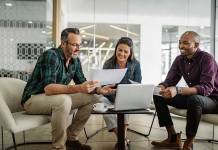
Sir Tim Berners-Lee, the inventor of the World Wide Web and Director of The Web Foundation, published an open letter this Sunday citing three main concerns about the future of the platform: personal data control, fake news, and political ads.
The letter is available in five different languages at the Foundation’s official site, and it was also published by The Guardian in the United Kingdom. The publication marks the 28th anniversary of the web’s creation.
Berners-Lee talks about three worrying trends he has observed over the course of this last year and talks about the paths that people can take to stop these issues from becoming something larger that will threaten the essence of the web.
Having control over our personal data is of the essence
First off, the father of the World Wide Web believes we have come to accept the exchange of personal data for online services without questioning as if that is a regular thing.
The British philanthropist says we should be more wary of companies that collect and store our data, for they could be misusing it for their personal gain or sharing it with third parties without notifying consumers.

This is an ongoing dilemma in the U.S. now with the FCC’s leadership change and recent actions. The Ajit Pai-led Commission wants to kill net neutrality rules established in past years so that providers and companies can freely use user data.
Fake news are a big problem
Secondly, Berners-Lee has concerns about the false news phenomena and the crazy way in which it has spread over the last few months. The inventor of the web believes we should stop this deceitful media frenzy before entities make use of it to find illicit profits.
Furthermore, data scientists behind the meteoric rise of fake news are responsible for reinforcing misguided points of view by feeding users with information that caters to their perspectives, leanings, preferences, and biases.
Online political ads and campaigning need clear governance
Last but not least, the last U.S. presidential race gave the founder of The Web Foundation something more to worry about, as he saw the political advertising online tied hand in hand with fake news and uncontrollable misinformation.
“THERE ARE SUGGESTIONS THAT SOME POLITICAL ADVERTS – IN THE US AND AROUND THE WORLD – ARE BEING USED IN UNETHICAL WAYS – TO POINT VOTERS TO FAKE NEWS SITES, FOR INSTANCE, OR TO KEEP OTHERS AWAY FROM THE POLLS,” Berners-Lee wrote.
The inventor of the Web says people and private firms must work together to accord a fair use of personal data, and that spearheading companies like Facebook and Google must continue to guard the internet against misinformation.
On the issue of political transparency online, Sir Tim Berners-Lee proposes a common framework that addresses the much-needed regulations for political campaigning on the Internet.
The Web Foundation will tackle these issues with several initiatives over the next five years, fighting around the world for causes that support net neutrality and openness on the web.
Source: The Web Foundation











